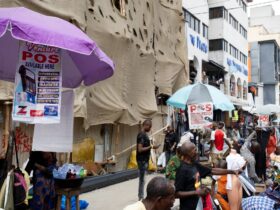Unleashing Africa’s Creative Potential: Experts Demand Fresh Funding and Innovation Hubs

Africa’s creative industry is brimming with talent, yet its growth is consistently hindered by persistent challenges such as insufficient infrastructure, limited financial resources, and fragmented support systems.
This perspective was shared during a panel at Moonshot by TechCabal, featuring prominent voices like Xavier Echassoriau, Regional Director at Proparco Nigeria; Adama Gaye, Head of Middle East and Africa at Orange Ventures; and Ann Marème-Atayi, Senior Manager for International Institutions at Euroquity. They delved into the obstacles and opportunities shaping Africa’s cultural and creative industries (CCIs).
Echassoriau underscored the critical need for skill development and reliable funding, both of which depend heavily on building investor confidence. He noted that many financiers still perceive the creative economy as a high-risk sector.
“There is a glaring shortage of specialized training programs tailored to creative professions across Nigeria and much of Africa,” he remarked. “Additionally, the scarcity of capital, combined with fragile infrastructure and governance, continues to restrict the potential of creative startups.”
Gaye emphasized that securing funding is not only an urgent requirement but also a strategic investment to enable creative ventures to scale sustainably. He highlighted the necessity for startups to hone their operational efficiency and business models to generate consistent revenue.
“Orange Ventures oversees a €350 million corporate venture capital fund that spans various sectors, including the creative industry,” he explained. “The key challenge is refining monetization approaches within this domain.”
To address investment uncertainties, Echassoriau pointed to pioneering initiatives like the EU’s Clearify program-the European Union’s inaugural effort to back CCIs through financial institutions by providing risk mitigation tools and technical assistance to investors.
“For example, if a venture capital fund invests in a creative enterprise and defaults, we cover up to 67.5% of the outstanding amount,” he detailed. “These mechanisms are vital for easing investor apprehensions while encouraging stronger governance and financial discipline among creative startups.”
Gaye added that Orange Ventures leverages its presence in 18 African countries to support creative scale-ups, granting entrepreneurs access to broad networks and internal expertise.
“Our extensive footprint allows us to offer scalability through Orange’s infrastructure,” he said. “With a workforce of over 18,000 across Africa, including technology experts, we are well-equipped to back creative entrepreneurs.”
Atayi highlighted the importance of clear communication channels between startups and investors. Through Euroquity, she facilitates this by organizing pitching and reverse pitching sessions to align expectations and enhance dialogue.
“We often observe a disconnect between startups and investor requirements,” she noted. “Our mission is to clarify these expectations so founders can better tailor their business proposals.”
She also recommended that startups participate in incubation and acceleration programs before seeking investment, as these stages build credibility and demonstrate market validation.
“Bypassing incubation is a frequent misstep,” Atayi cautioned. “Many entrepreneurs approach us with just an idea, but investors usually demand proof of traction and product viability before investing.”
As a success story, Atayi cited Mood Swings, a South African startup that thrived after participating in an acceleration program run by the French Institute across South Africa, Lesotho, and Malawi.
“Mood Swings illustrates how international collaborations are driving progress in Africa’s creative industries and crafting innovative solutions to existing challenges,” she concluded.








Leave a Reply